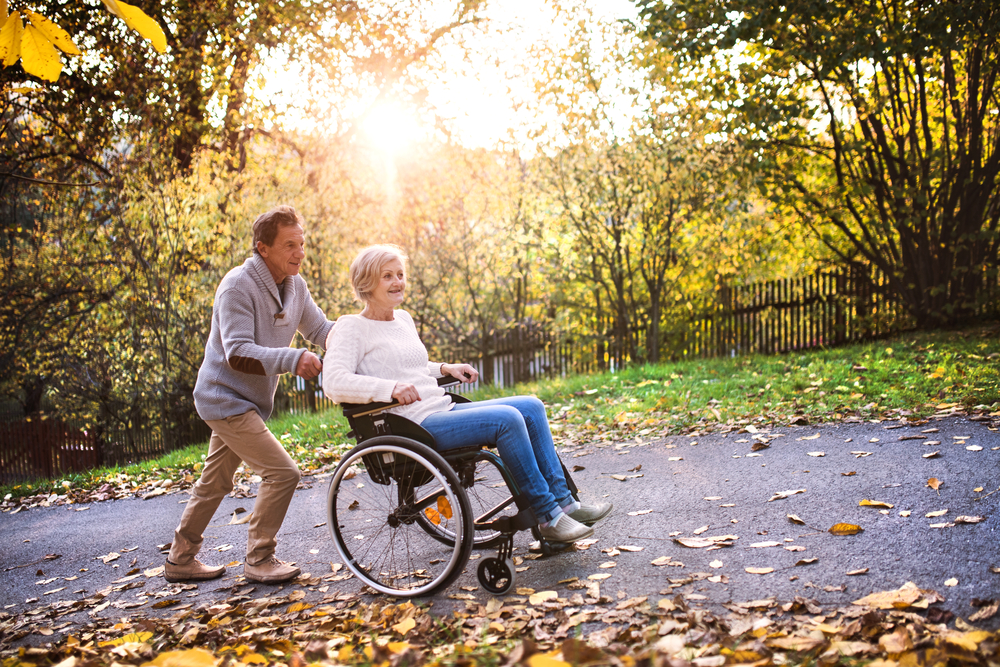So, as a caregiver, it’s important to keep in mind some best practices for helping your loved who uses a walker. Here are three:
1. Help your loved one practice using the walker.
When first getting used to a walker, a user may feel frustrated or even afraid of the activity. After all, having a mobility issue is equally as emotionally troubling as it is a physical hardship. With that said, your loved one may need a little bit of encouragement. Helping him/her get a feel for the new walker by doing a little “exercise” with it will aid in the mobility solution’s safe use.
On Caring.com, Bonita Lynn Beattie, who is the vice president for injury prevention for the Center for Healthy Aging, writes that practice makes perfect when it comes to the safe use of walkers. “First and foremost, walkers (and/or canes) should be fitted to the individual with appropriate instruction and practice in its use,” she insists, “Most (of) the injuries are due to inappropriate fit, lack of instruction and practice in the safe use, and/or using an inappropriate device to accommodate the need.”
2. Be encouraging about the use of the walker.
As mentioned earlier, mobility issues can have significant impacts on the emotional states of those who endure them. As a caregiver, it’s important to be every bit as encouraging as you are willing to help with physical tasks. After all, your elderly loved one may be opposed to using a walker. Also on Caring.com, physical therapist, Laura Beltramo answers a caregiver’s question about how to encourage walker use.
“When talking to your father, compare using a walking aid with using a seat belt: It’s simply the smart thing to do,” she recommends, “You can throw in the startling statistics associated with falling — which is much more likely to happen without a walking aid: Among people 85 and over, one fall in every ten will result in a hip fracture.”
3. Assist your loved one with getting in and out of their seated positions.
It’s important to not have the walker used as a grab bar. It isn’t meant to be pulled on in order to get up out of a chair or couch. Pulling, for all intents and purposes, should be avoided. Beattie notes that caregivers should take extra special care to ensure that their elderly loved ones safely get up from their seats.
“Older adults should not pull on the walker to get up from a couch or chair,” she advises, “Nor should the caregiver pull on the older adult. To arise, the older adult should slide forward in the seat with the feet planted firmly on the floor and push up, or use the chair arms as necessary. An assist from the gait belt could be offered as necessary. The walker should be placed directly in front of the older adult for use upon arising, only after their balance is re-established.”
At Advantage Home Health Solutions, we proudly offer a number of different walkers to meet the varying needs of your elderly loved one. Choose from basic walkers, two-wheel walkers or four-wheel walkers depending on your loved one’s requirements. Our team takes great measures to ensure that you are kept informed about the benefits of each option so that you can make the perfect choice to add ease to your elderly loved one’s life.
If you have any questions about the walkers that Advantage Home Health Solutions has to offer, please don’t hesitate to contact us to ask them. Give us a call at 403-460-5438. You may also email us by filling out the form on our Contact Us page!




